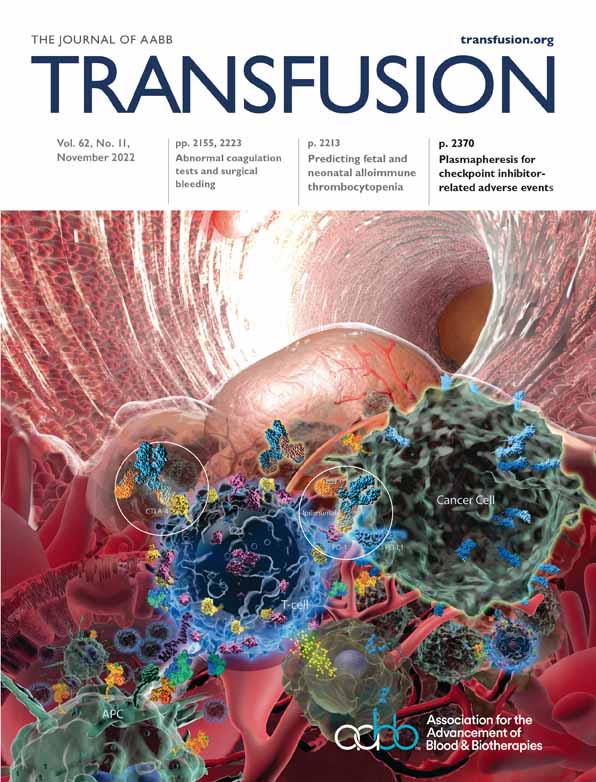Blood conservation strategies at United States hospitals during the COVID-19 pandemic: Findings from a multi-institutional analysis - International Society of Blood Transfusion survey
Abstract
Background
Due to the coronavirus disease 2019 (COVID-19) pandemic, the transfusion medicine community has experienced unprecedented blood supply shortages since March 2020. As such, numerous changes to everyday practice have occurred with a specific emphasis on blood conservation. We sought to determine the strategies used to mitigate blood shortages and promote blood conservation during the pandemic.
Methods
An anonymous, 37-question survey was developed using Research Electronic Data Capture and distributed via e-mail to transfusion medicine specialists across the US obtained via publicly available databases.
Results
Amongst surveyed [41.1% response rate (51/124 institutions)], 98.0% experienced a product shortage, with the greatest number reporting red blood cell (RBC) shortages (92.0%). This led to 35.3% of institutions altering the composition and/or number of blood product suppliers, including a 100% increase in the number of institutions acquiring blood from organizations that connect hospital transfusion services with blood collection centers (e.g., Blood Buy) compared to before March 2020. Prospective triaging of blood products was the most common blood conservation strategy (68.1%), though 35.4% altered their RBC exchange or transfusion program for patients receiving chronic RBC transfusion/exchange. As a result of these changes, 78.6% of institutions reported that these changes resulted in a reduction in blood product usage, and 38.1% reported a decrease in product wastage.
Conclusions
Most hospitals experienced the effects of the supply shortage, and many of them implemented blood conserving measures. Conservation strategies were associated with decreased blood utilization and waste, and future studies could evaluate whether these changes persist.
CONFLICT OF INTEREST
Jeremy W. Jacobs has no disclosures and denies any conflicts of interest. Laura D. Stephens has no disclosures and denies any conflicts of interest. Eric A. Gehrie is a consultant to Grifols Diagnostics and reports stock ownership in Refactor Health. Garrett S. Booth denies any conflicts of interest but reports that he has received payments from Grifols Diagnostic Solutions, Inc. that are unrelated to the contents of this submission. Brian D. Adkins has no disclosures and denies any conflicts of interest. Jennifer S. Woo has no disclosures and denies any conflicts of interest. Dawn C. Ward has no disclosures and denies any conflicts of interest. Yara A. Park has no disclosures and denies any conflicts of interest. Matthew S. Karafin denies any conflicts of interest but reports that he is a consultant for Westat, Inc. Elizabeth Abels has no disclosures and denies any conflicts of interest. Elizabeth S. Allen has no disclosures and denies any conflicts of interest.




